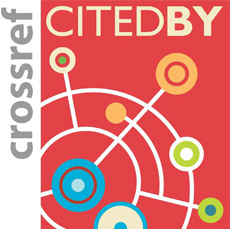ISSN : 2288-1484(Online)
DOI : https://doi.org/10.12812/ksms.2013.15.4.373
사회적자본과 혁신활동의 관계에서 지식공유의 매개효과: 중소기업을 중심으로
The mediating effect of knowledge sharing between social capital and innovation in small business
Abstract
- 0060-01-0015-0004-43.pdf421.6KB
Reference
2.Ahn, K. Y.(2012a), "The relationship between organizational justice and innovative behavior, and the moderating effect of gender", Journal of the Korea Safety Management & Science, 14(2): 229-236.

3.Ahn, K. Y.(2012b), "The relationship between perceived organizational commitment and increme ntal innovation", Journal of Society of Korea Industrial and Systems Engineering, 35(1), 154-160.
4.Ahn, K. Y.(2013), "The relationship between social capital and innovation in small business of Convergence Federation", Journal of the Korea Safety Management & Science, 15(1), 317-325.

5.Adler, P. S., & Kwon, S. W.(2002), "Social Capital: Prospects for a New Concept", Academy of Management Review, 27(1), 17-40.

6.Alwin, D. F., and Hauser, R. M.(1975), "The decomposition of effects in path analysis", American Sociological Review, 40. 37-47.

7.Baron, R. M. & D. A. Kenny (1986), "The Moderator-Mediator Variable Distinction in Social Psychology Research: Conceptual, Strategic, and Statistical Considerations," Journal of Personality and Social Psychology, 51(6), pp. 1173-1182.


8.Bourdieu, P.(1986), The forms of capital, in J, G, Richardson(Ed,), Handbook of theory and research for the sociology of education: New York: Greenwood.
9.Canter, U., K. Joel, and T. Schmit(2011), "The effects of knowledge management on innovative success: An empirical analysis of German firms", Research Policy, 40, 1453-1462.

10.Chang, K. S.(2010), The Determinants and Cons equences of Knowledge Management, and The Moderating Effects of Organizational Culture, Doctoral dissertation of Sangji University.
11.Chang, H. H., and Chuang, S. S.(2011), "Social capital and individual motivations on knowledge sharing: Participant involvement as a modera tor", Information & Management, 48, pp. 9-18.

12.Chiu, C., Hsu, M., Wang, E.(2006), "Understan ding knowledge sharing in virtual communities: an integration social capital and social cognitive theories", Decision Support Systems, 42(3), 1872-1888.

13.Choi, B., K.(2007), Knowledge Management and it's performance, Working paper of Industrial Institute, 53-62.
14.Chow, W. S., and Chan, L. S.(2008), "Social network, social trust and shared goals in organi zational knowledge sharing", Information & Management, 45, pp. 458-465.

15.Chung, D. D.(2005), "The contingent relation between innovation pattern and performance in R&D and marketing interface", Fall conference proceedings of Korean Society of Technical Innovation, 159-183.
16.Coleman, J. S.(1988), "Social Capitalin the Crea tion of Human Capital", American Journal of Sociology, vol. 94, pp. 95-120.

17.Damanpour, F.(1991), Organizational innovation: A meta-analysis of effects of determinants and moderators. Academy of Management Journal, vol. 34, no. 3, pp. 555-590.

18.Hazleton, V. Y., & Kennal, W.(2000), "Social Capital: Reconceptualizing the Bottom Line", Corporate Communication: An International Journal, vol. 5, no. 2, pp. 1-86.

19.Heo, M. G.(2011), "Social Capital, Knowledge Creation, and Innovation ", Korean Journal of Management, 19(1);. 41-78.
20.Hsu, I-Chieh(2008), "Knowledge sharing practic es as a facilitating factor for improving organiza tional performance through human capital: A preliminary test", Expert Systems with Applicat ions, 35, 1316-1326.
21.Kang, S. R., and Kim, H. G.(2005), "Knowledge Transfer for Me and Us Theory: A Grounded Theory Describing the Psychological State of Organizational Members Transferring Knowled ge, " Korean Management Review, 34(3), 739-781.
22.Kwon, Y. K.(2010), Does Open Innovation Contri bute to Innovation Performance?: Empirical Evid ences from Korean SMFs, Asia Pacific Journal of Small Business, 32(2), 145-168.
23.Landry, R., N. Amara, M. Lamari(2002), "Does social capital determine innovation? To what extent?", Technological Forecasting & Social Change, 69, 681-701.

24.Lee, C. K.(2007), "Determinants of managerial innovation and technical innovation", Doctoral dissertation of Dan-gook University.
25.Lee, J. K.(2002), "A Comparative Study of Technology Mix with Knowledge Network Organization", Asia Pacific Journal of Small Business, 24(3); 3-35.

26.Liao, C., and Chuang, S. H.(2006), "Exploring the role of knowledge management for enhanc ing firm's innovation and performance", Proceed ings of the 39th Hawaii International Conference on Systems Sciences.
27.Liao, S. & Hu, T. (2007), "Knowledge transfer and competitive advantage on environmental unc ertainty: An empirical study of the taiwan semiconductor industry," Technovation, 27(6-7), 402-411.

28.Liao, S. H., and C. C. Wu(2010), "System perspective of knowledge management, organiza tional learning, and organizational innovation", Expert Systems with Applications, 37, 1096-1103.

29.Madanmohan(2005), "Incremental Technical Innovation and their Determinants," Internatio nal Journal of Innovation Management, 9(4),. 481-510.
30.Miller, D. & P. H., Friesen(1984), Organizations: A Quantum View, New Jersey: Prentice-Hall.
31.Nonaka, I. & Takeuchi, H. (1995), The knowle dge-creating company : How Japanese compa nies create the dynamics of innovation, NewY ork : NY, Oxford University Press.
32.Perez-Luno, A., Medina, C. C., Lavado, A. C., and Rodriguze, G. C.(2011), "How social capital and knowledge arrect innovation", Journal of Business Research, 64, pp. 1369-1376.

33.Price, J. L. & C. W. Mueller(1981), A Causal Model of Turnover for Nurses, The Academy of Management Review, 24(3), pp. 543-565.

34.Putnam, R. D.(1993), "The Prosperous Commu nity: Social Capital and Public Life", American Prospect, vol. 13, pp. 35-42.
35.Song, J. H.(2004), A study on the effects of social capital on the organizational performance, Ms. dissertation of Sangji University.
36.Tsai, W., & Ghoshal, S.(1998), "Social capital and value creation : the role of intra firm networks", Academy of Management Journal, vol. 40, no. 4, pp. 464-476.

37.Van Dyne, L., Graham, J. W., & Dienesch, R. M.(1994), "Organizational Citizenship Behavior: Construct redefinition, measurement, and valida tion." Academy of Management Journal, 37, pp. 765-802.

38.Wiig, K. M. (1997), "Integrating intellectual capital and knowledge management," Long Range Planning, 30(3), 399-405.

-
-
Online Submission
http://submission.koreasafety.or.kr
-
KSSM
The Korean Society of Safety ManagementWaste Society
-
Editorial Office
Contact Information- Tel: +82.31.336.2844
- Fax: +82.31.336.2845
- E-mail: safety@mju.ac.kr -

-

-

-

-

-

-







